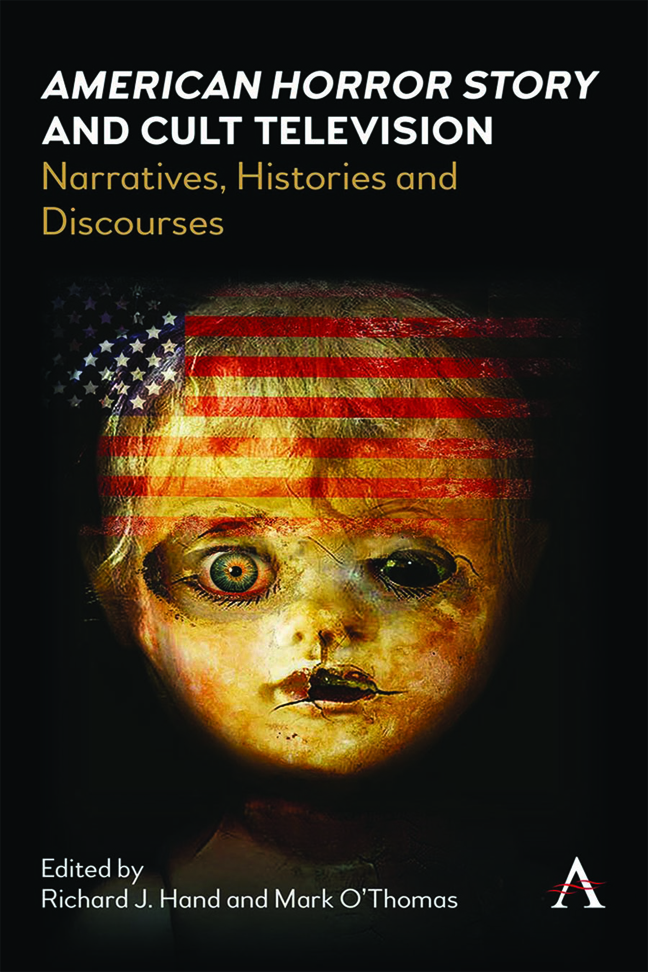Introduction
Published online by Cambridge University Press: 01 March 2024
Summary
Brad Falchuk and Ryan Murphy – the co-creators and showrunners of American Horror Story (AHS) since its inception in 2011 on the FX cable network – have been pioneering and prolific figures in the production of ‘Quality Television.’ From medical drama Nip/Tuck (2003–10) to the high school drama Glee (2009–15), Falchuk and Murphy have become key figures in the landscape of American television production. Some themes and settings recur in their work: the high school melodrama of Glee is echoed in the satirical world of high school politics in The Politician (2019–20). Heightened glamour and characterdriven melodrama can be found in Pose (2018–21), about the 1980–90s drag scene in New York City, similar to the qualities that imbued Feud (2017) and its vivid exploration of the camp folklore surrounding Bette Davis and Joan Crawford during the filming of Whatever Happened to Baby Jane? (Robert Aldrich 1962). This fascination with the myths, intrigue and glamour of a long-gone Hollywood is also evident in the aptly titled Hollywood (2020), an idealised reimagining – an ‘alternate history’ – that reclaims ‘real’ figures such as Rock Hudson and others and strives to liberate them from the systemic homophobia and racism of the era. Hollywood had a divided reception – some critics taking exception to what they saw as its naïve alt-historicization – but the work unmistakably reveals numerous tropes that pervade the Falchuk and Murphy universe, such as their recurrent use of favourite actors and their trademark displays of sexuality, sexual politics and sexiness.
Feud and Hollywood's animation of genuine characters from history is most profoundly developed in the American Crime Story (2016 onwards) series strand, which has dramatized, true stories such as the O. J. Simpson trial, the murder of Gianni Versace, the Bill Clinton and Monica Lewinsky scandal and the rise and fall of the Studio 54 club in the 1970s. When it comes to horror – and it must be said that some of the scenes and narratives in American Crime Story can be as horrifying as anything in AHS – series such as Scream Queens (2015–16) stand as deliriously comedic counterpoints to AHS. In many respects, Scream Queens can be seen as being positioned in the territory between Glee, The Politician, Pose and AHS: a profound satire of youth culture, school/college life and its brutal prejudices, vendettas and hierarchies.
- Type
- Chapter
- Information
- American Horror Story and Cult TelevisionNarratives, Histories and Discourses, pp. 1 - 10Publisher: Anthem PressPrint publication year: 2023



